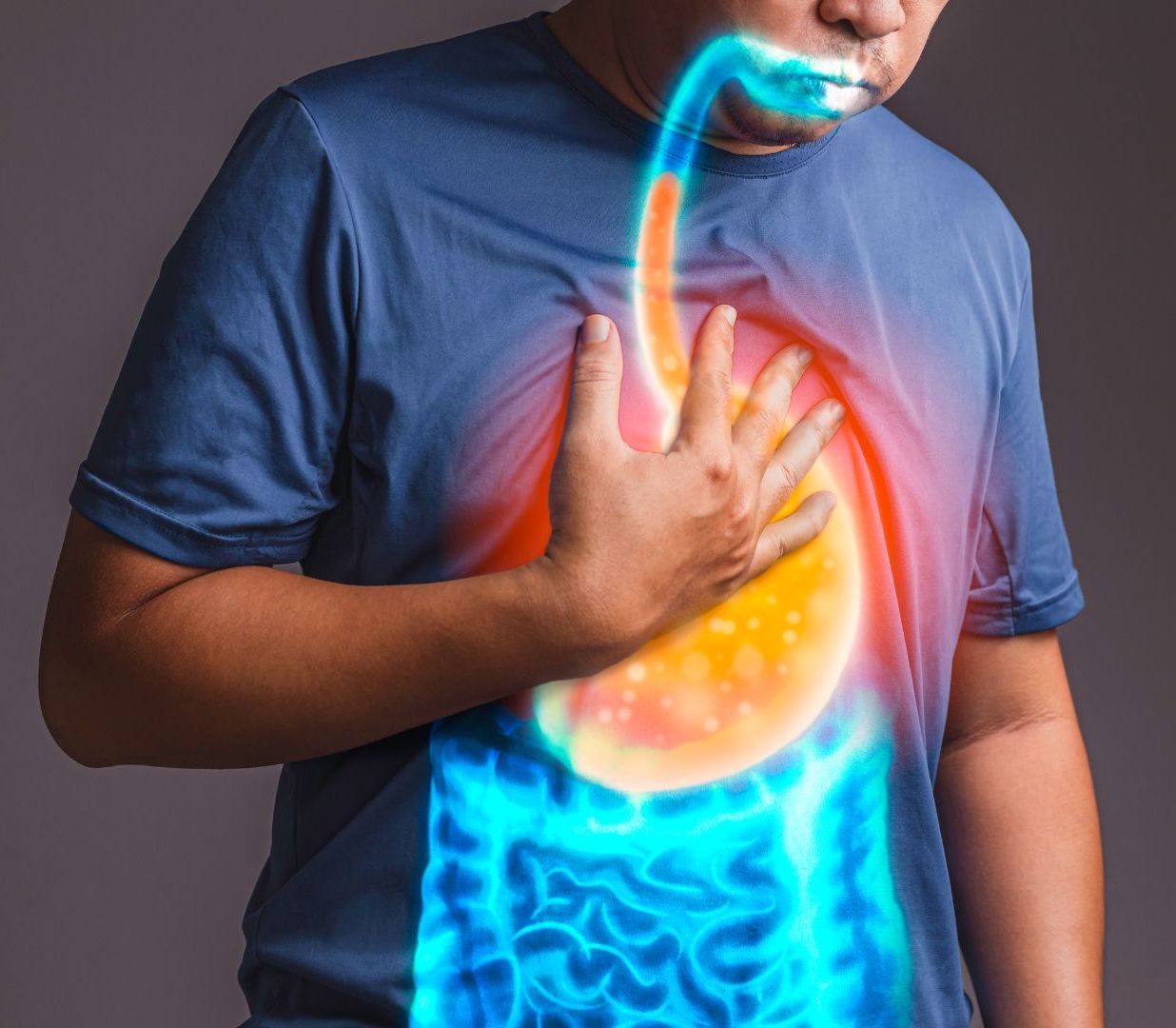Heartburn and Reflux
What are Heartburn and Reflux?
- Heartburn occurs when acid or other stomach contents “back up” or “reflux” into the esophagus, which connects the throat to the stomach and where food passes through from the mouth. Also called acid indigestion, heartburn is a symptom of gastroesophageal reflux (GERD).
- The issue stems from the lower esophageal sphincter (LES), a muscle that is located between your stomach and esophagus. When it’s functioning well, it will open to let food into your stomach or to let you blech and close again. But if it is weak or relaxes at inappropriate times and doesn’t close tightly or quickly enough, it will cause acid backwash which results in heartburn. It can be described as a burning discomfort in the upper belly or below your breastbone.
- Heartburn is a common symptom. It is often caused by overeating or there is too much pressure on your stomach due to constipation, obesity or pregnancy. Consuming spicy food or taking alcohol can also relax your LES too much or increase stomach acid.

WHEN to See a Doctor for HEARTBURN
You should see a heartburn doctor if you experience the following:
- If you are reaching for antacids or medication more often than not, and you are not getting better, it’s time to seek medical help and head to a heartburn clinic. You may need additional investigation if the issue occurs more than once a week for six months or longer.
- Long-term heartburn or GERD can lead to serious problems such as narrowing or scarring of the esophagus and eventually cancer of the esophagus.
CAUSES of HEARTBURN
The risk of heartburn is increased when there is a greater production of acid in the stomach caused by the foods we eat and drink such as acidic juices (orange, grapefruit, pineapples), acidic foods (tomatoes), caffeine, alcohol, chocolate and carbonated beverages. Over-the-counter medications also may precipitate heartburn.
Other factors include smoking and consumption of high-fat content or spicy foods, pregnancy, and obesity.
RISK FACTORS of HEARTBURN
Many lifestyle factors can contribute to heartburn and reflux
- Stress
- Cigarette smoking
- Alcohol consumption
- Obesity
- Medications
- Certain exercise involving body position bending over.
DIAGNOSIS of HEARTBURN
- The diagnosis of heartburn and reflux often requires careful and detailed history taking, paying attention to the site, duration, severity of the pain as well as the associated symptoms. Physical examination may sometimes be helpful. Specialists in gastroenterology can also conduct further investigations such as blood test, CT scan, gastroscopy and colonoscopy which may be necessary.
- If you experience heartburn and reflux that could not be resolved with treatment with your family doctor, you probably would benefit from an expert evaluation from a heartburn specialist. You should not delay the evaluation for more than 2-3 weeks to ensure that there is no delay in diagnosis.
TREATMENT of HEARTBURN
- Share with the heartburn doctor or see a specialist in gastroenterology regarding your symptoms. The heartburn specialist may begin with a history and physical examination to make a diagnosis of GERD and recommend an appropriate heartburn treatment. He or she may carry out several tests needed to evaluate the underlying issue, and gastroscopy is often carried out for further evaluation. For refractory cases, specialized study such as 24-hour pH study may be carry out. In Singapore, this is available at any heartburn clinic such as GUTCARE or major Government hospital.
- Lifestyle modification and dietary changes can also help in managing heartburn. A modest weight loss can have significant benefit in term of symptom improvement. Avoid eating heavily or eating within two hours of bedtime, or lying down soon after a meal. Cut down or stop eating certain known foods like fatty, fried and acidic foods, citrus juices and alcohol. As everyone reacts somewhat differently to specific foods, keep a food journal to keep track of what you eat, what time, any activity that worsened the condition and how long is the duration. This way, you can correlate the offending foods with heartburn incidents.




